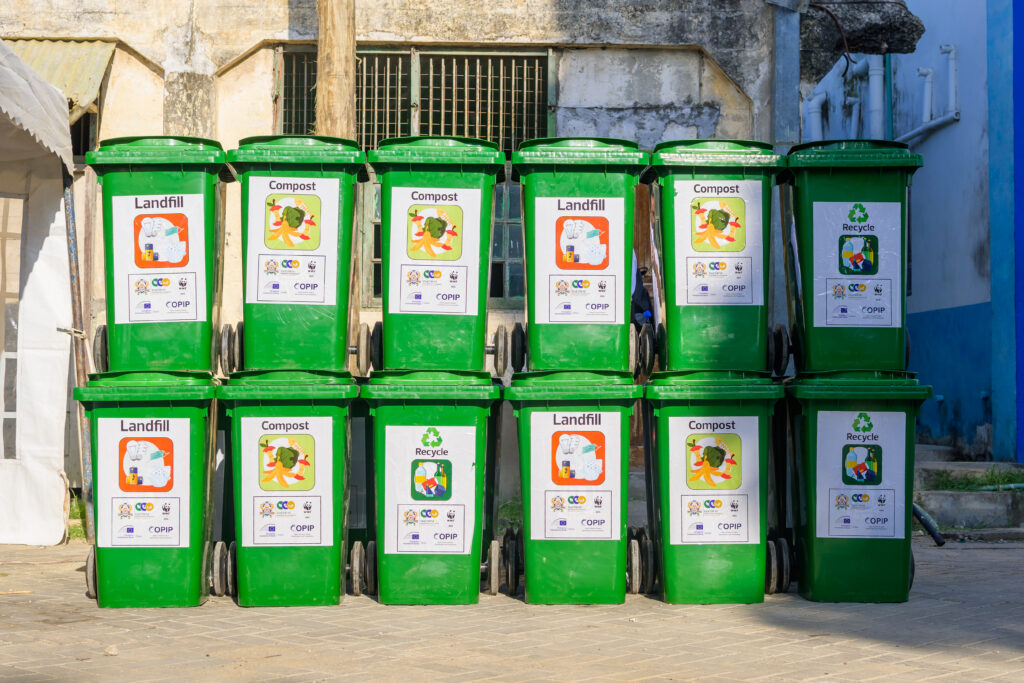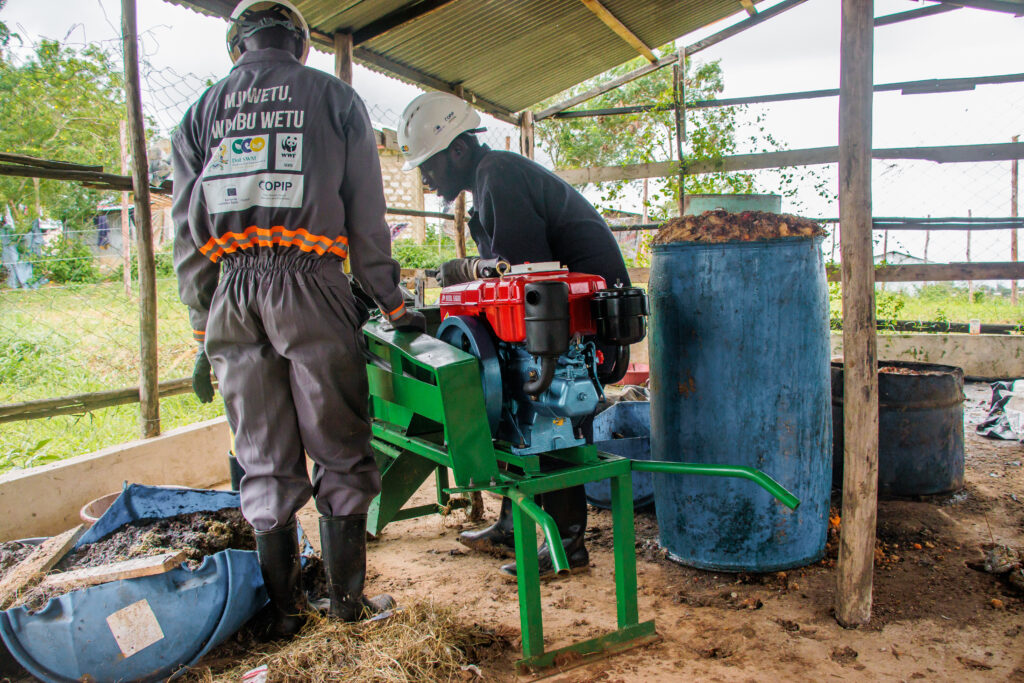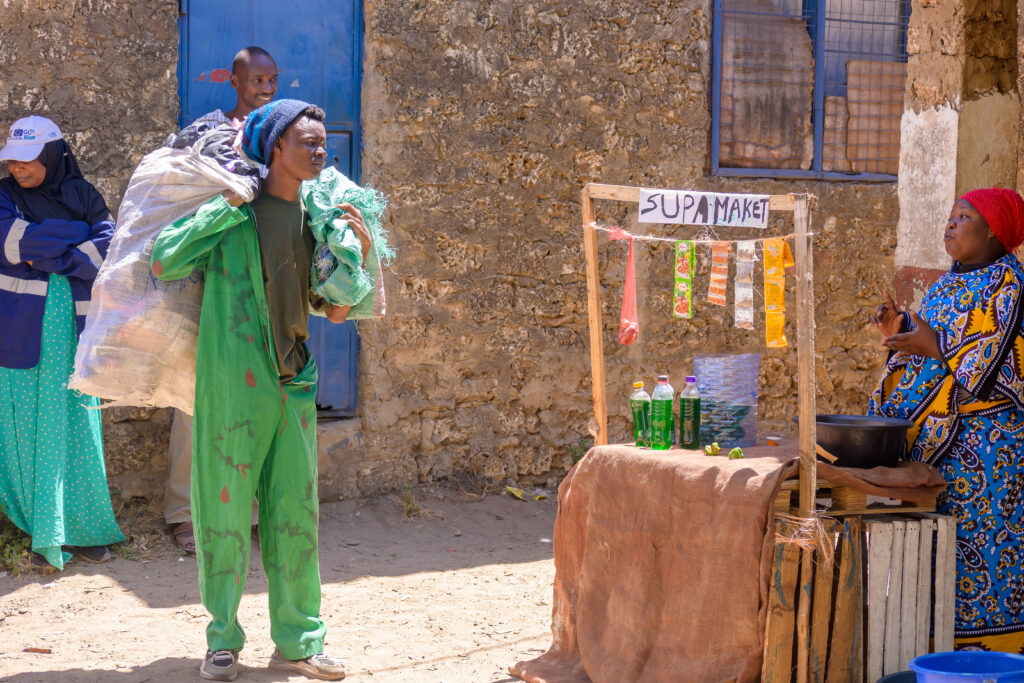WWF-Kenya is implementing a waste segregation pilot project to promote sustainable waste management and support the pre-feasibility study undertaken by Clean Oceans Project Identification and Preparation (COPIP), with support from the European Investment Bank. The project commenced late last year but was officially launched on 28 March 2024.
3-bin Pilot Project in sub-counties of Mombasa
Implemented in Likoni and Mvita sub-counties of Mombasa, the pilot aimed to test a 3-bin (Recyclable, Compostable and Hazardous) waste collection system across 800 households. Facilitated by local government structures, the project’s objectives included improving waste recovery rates, mitigating illegal dumping, and enhancing livelihoods through waste collection and valorization.


Likoni, characterized by informal settlements, and Mvita, with dense populations and a central business district, provided diverse testing environments. Substantial improvements in waste management were seen in both areas, with Likoni showing potential reductions in illegal dumping through waste segregation and Mvita experiencing enhanced efficiency in waste collection in densely populated zones. In the first month, the project collected a total of nearly 3,000kg of waste, mainly consisting of organic waste (67.7%), followed by recyclables (20.2%), and only slightly over 10% ending up in landfills.
Theatre performance to spread awareness of waste segregation
To increase awareness about waste segregation at the household level, the project organised theatre performances in both Mvita and Likoni, attended by 300 local community members. The performances emphasized the importance of waste segregation and the negative impacts of burning waste, which is a common practice in the neighbourhoods.

All this was documented through videography. Which will play a crucial role in raising further awareness and educating the public about the benefits of waste segregation. The play was interactive and successfully engaged the audience who contributed with their ideas on how to best segregate waste. Moreover, the performance gained the participation of some residents who originally were not part of the pilot project to consider practicing waste segregation at source.
This pilot project concluded in June 2024. In a bid to leverage its successes, the project recommends expanding waste segregation to more households, bolstering awareness campaigns, and fostering stronger collaboration with local administrative structures. The pilot validated waste segregation systems and laid a foundation for future waste management endeavours, indicating potential scalability to similar challenges in other regions.


